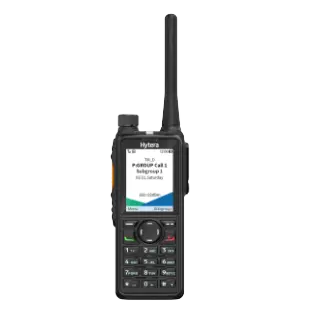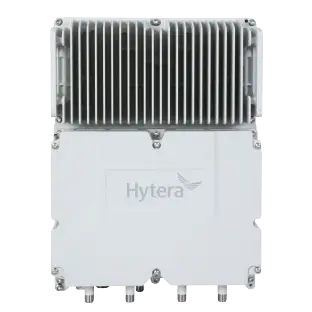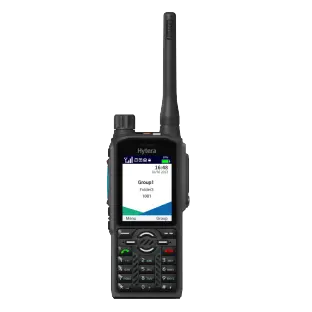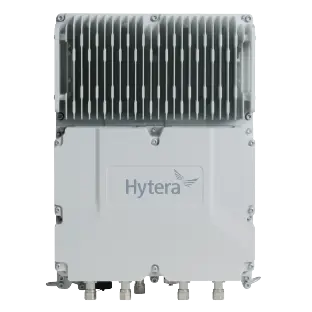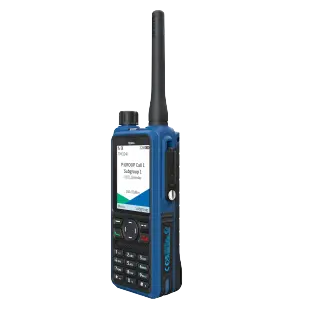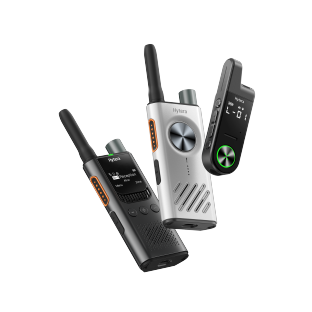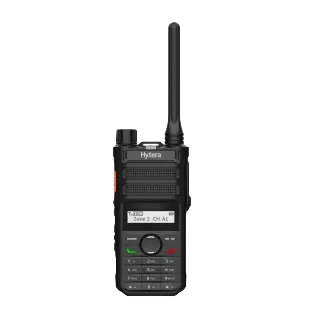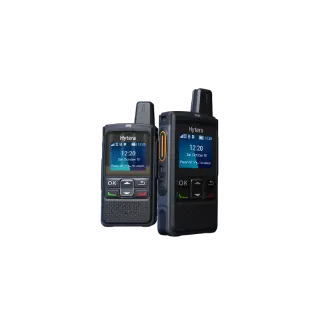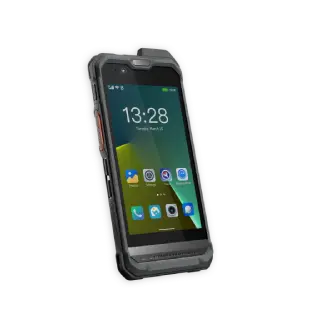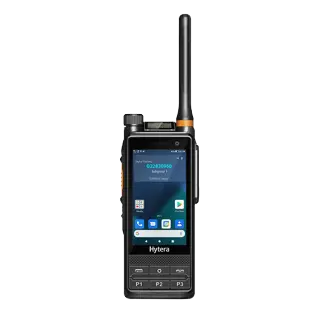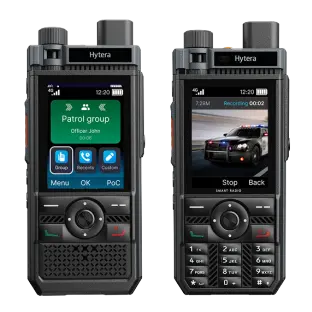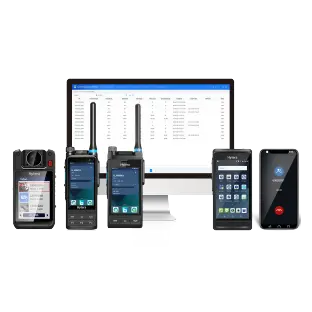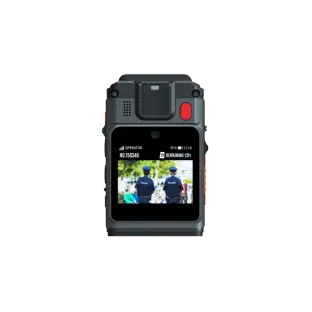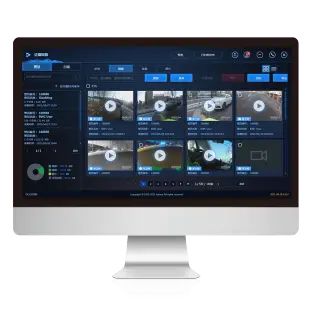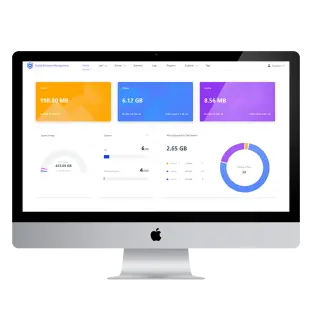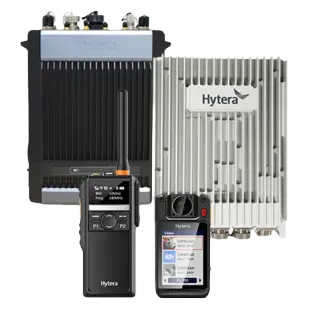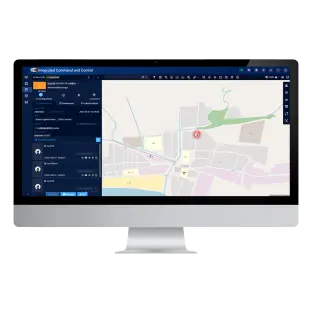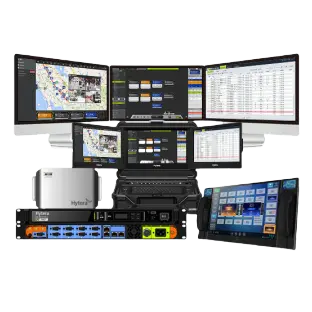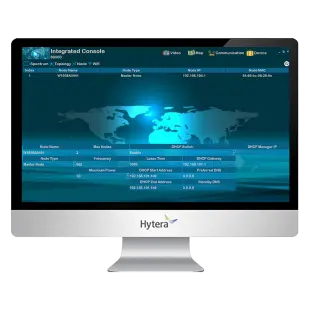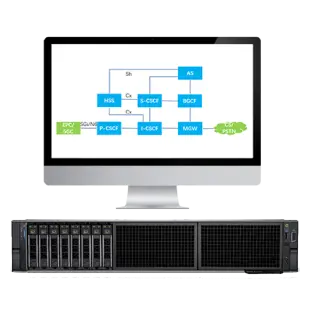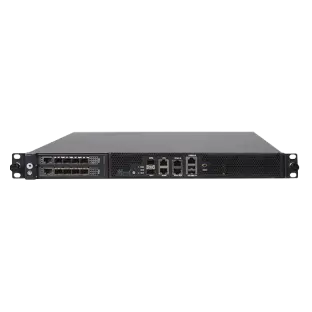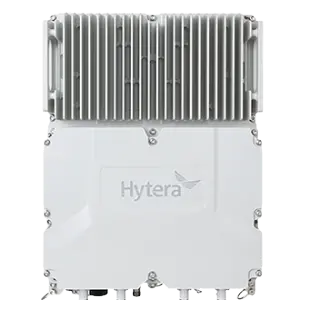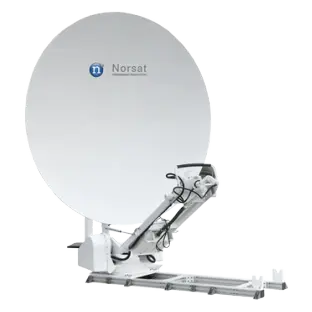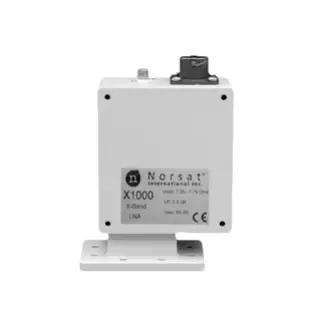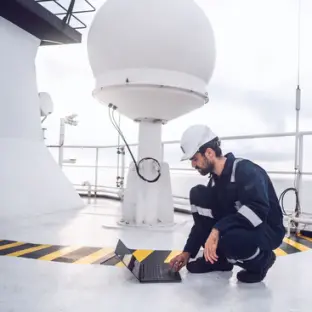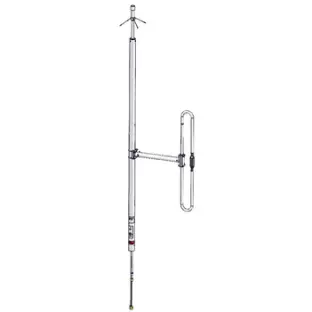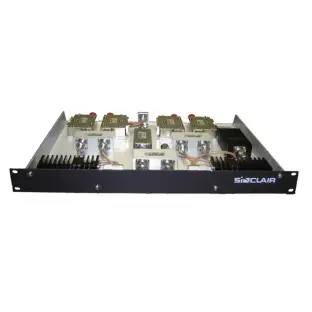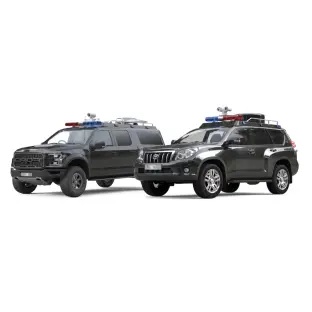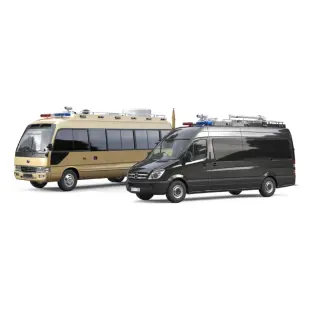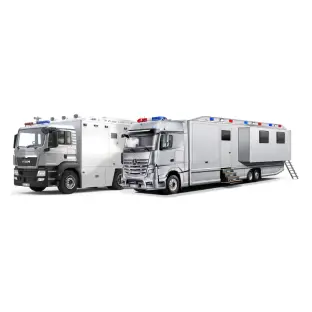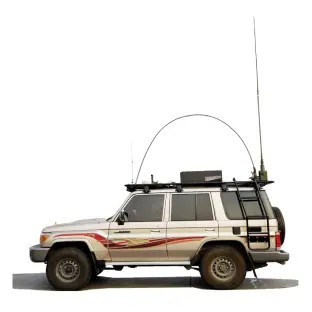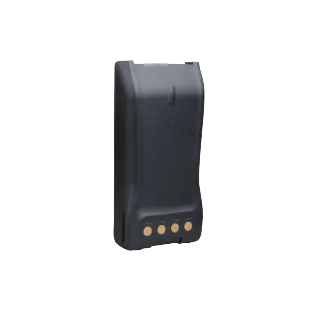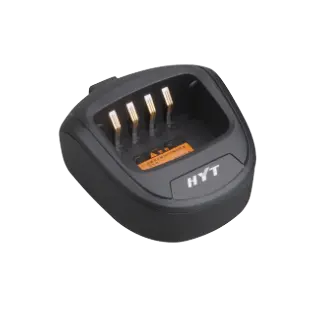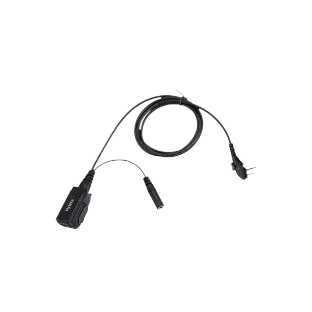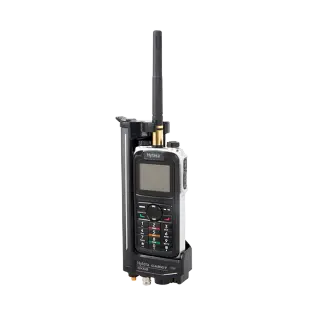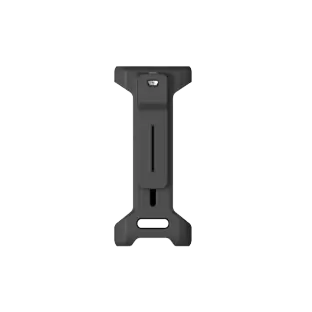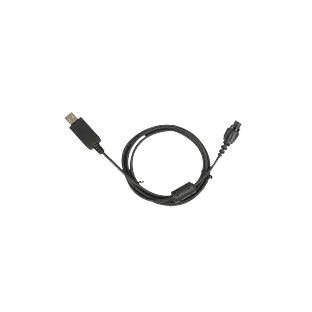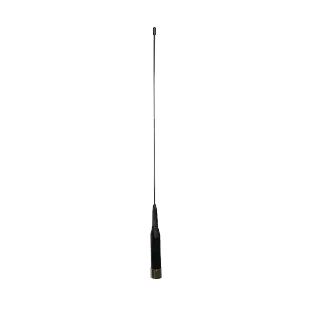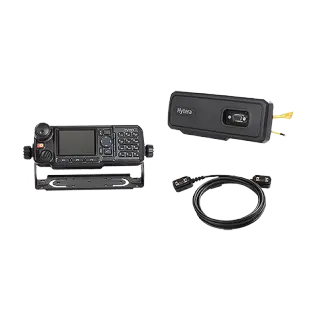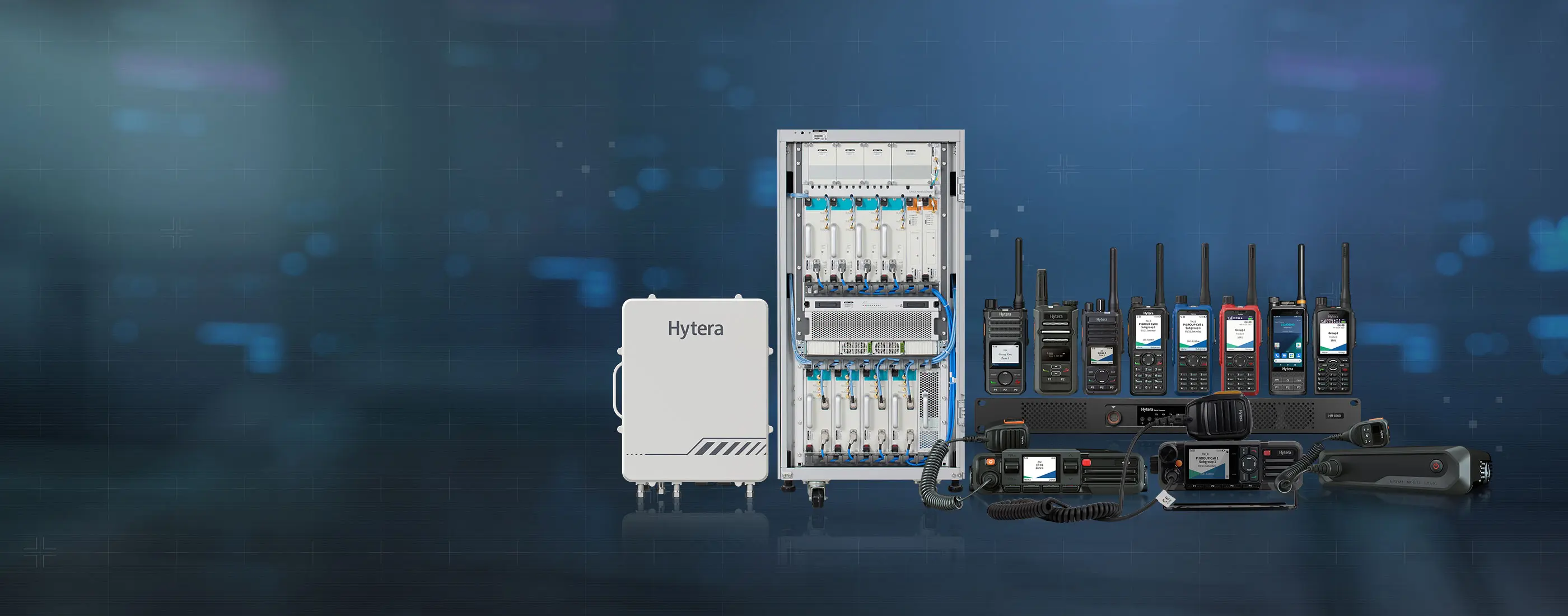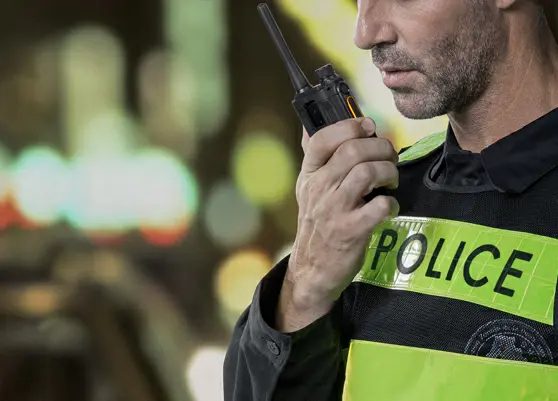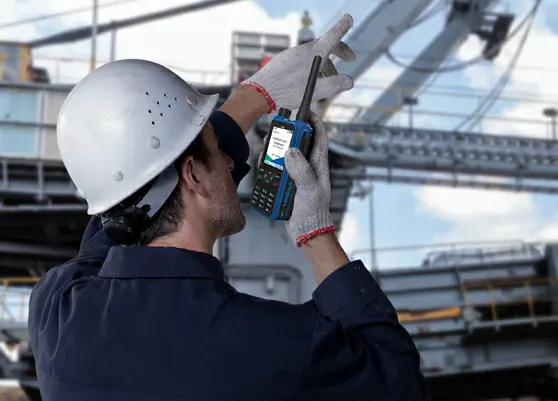
In response to evolving needs of our customers for enhanced safety and operational efficiency, Hytera invests significantly in research and development, seamlessly integrating cutting-edge technologies into the development of our Professional Mobile Radio (PMR) products. Our commitment is reflected in a diverse array of two-way radios, leveraging both DMR and TETRA protocols, tailored to meet the communication requirements of sectors such as public safety, fire and rescue, private security, utilities, and enterprises. Recognized as a pioneer in purpose-built radios, Hytera stands out, providing intrinsically safe (IS) models designed for the most challenging and demanding use cases.
- DMR Radios
- TETRA Radios
- Analog Radios
- Intrinsically Safe Radios
-
![DMR Radios]() LEARN MORE
LEARN MOREDMR Radios
Our Digital Mobile Radio (DMR) solutions comply to the open standard developed by ETSI, utilizing UHF and VHF frequencies to ensure secure and reliable communications.
- Public Safety
- Private Security
- Mining, Oil & Gas
- Hospitality & Events
![DMR Radios]()
-
![TETRA Radios]() LEARN MORE
LEARN MORETETRA Radios
Hytera's Terrestrial Trunked Radio (TETRA) radios conform to the global standard set by ETSI, boasting versatile features and exceptionally secure communications.
- Public Safety
- Utilities
- Transportation
- Mining, oil and gas
![TETRA Radios]()
-
![Analog Radios]() LEARN MORE
LEARN MOREAnalog Radios
Analog radios employ frequency modulation (FM) to encode voice signals onto a carrier wave. HYT and Hytera series of analog radios have been widely adopted across the world over three decades.
- Construction
- Private Security
- Hospitality & Events
![Analog Radios]()
-
![Intrinsically Safe Radios]() LEARN MORE
LEARN MOREIntrinsically Safe Radios
Our Intrinsically Safe (IS) radios hold certifications such as IECEx, ATEX, NEC, CCC-Ex, and UL913, ensuring compliance and safety at workplaces with explosive gas and combustible dust.
- Mining, oil and gas
- Fire & Rescue
- Chemical Plant
![Intrinsically Safe Radios]()
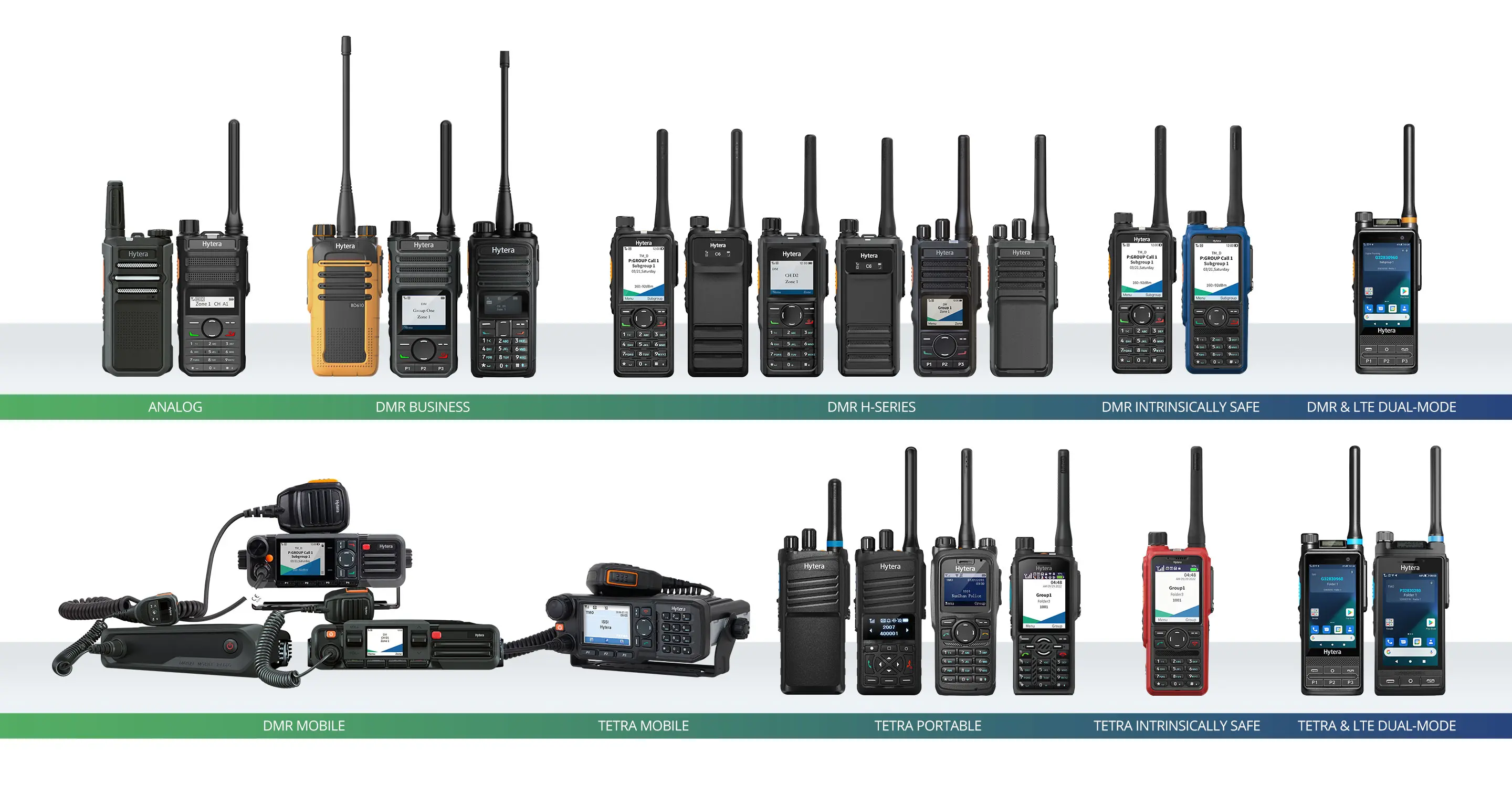
Frequently Asked Questions
What is a two-way radio?
- A two-way radio is a communication device that allows for both transmitting and receiving of audio signals. Unlike a broadcast radio that only receives signals, a two-way radio enables users to communicate back and forth. These devices are used in various settings such as business operations, public safety, recreational activities, and more. They are crucial for situations where instant communication is necessary, such as in emergencies or for coordination in large events.
What is the range of a typical two-way radio?
What is the difference between a two-way radio and a walkie-talkie?
How do I choose the right two-way radio for business?
Selecting the appropriate two-way radio for your business can significantly enhance communication efficiency and productivity. Here are the key factors to consider:
1、Determine the Communication Range Needed: Assess the size of the area where communication is required. For small to medium-sized premises, such as retail stores or restaurants, a lower-powered radio may suffice. Larger areas like warehouses or construction sites may need higher-powered radios to ensure adequate coverage.
2、Consider the Work Environment:
Indoor Use: UHF (Ultra High Frequency) radios are generally better for indoor environments with many obstructions, such as walls and machinery, as they provide better penetration.
Outdoor Use: VHF (Very High Frequency) radios perform well in open areas with fewer obstructions, making them ideal for outdoor settings.
3、Evaluate Durability and Build Quality: Business environments can be harsh, so select radios that are rugged and durable. Look for radios with military-grade specifications for resistance to dust, water, and shock.
4、Battery Life: Choose radios with long battery life to ensure they last through the entire workday. Consider radios with rechargeable battery packs and the option to use spare batteries.
5、Number of Channels: More channels allow for more separate lines of communication, which is useful for larger teams or operations with different departments. Ensure the radio supports enough channels to meet your needs.
6、Licensing Requirements: Some business radios require an FCC license to operate. Ensure you understand the licensing requirements for the radios you are considering and budget for any associated costs.
7、Additional Features:
Privacy Codes: Help minimize interference from other radio users by allowing only radios with the same code to communicate with each other.
VOX (Voice-Activated Transmission): Allows hands-free operation, which can be crucial in busy environments.
Emergency Alerts: Radios with emergency alert features can be vital for safety in hazardous workplaces.
Noise-Canceling Microphones: Useful in noisy environments to ensure clear communication.
Ease of Use: Ensure the radios are user-friendly and easy to operate, especially if they will be used by staff with varying levels of technical expertise. Simple, intuitive controls can reduce training time and errors.
Cost: Balance your budget with the features and durability you need. While higher-end models offer more features and better build quality, there are many mid-range options that provide excellent value for money.
By carefully considering these factors, you can select the right two-way radio that meets the specific communication needs of your business, ensuring efficient and reliable communication among your team members.
Do I need a license to operate a two-way radio?
Licensing requirements depend on the type of two-way radio and the frequency band it operates on. For example:
1、FRS (Family Radio Service) Radios: Do not require a license and are commonly used for personal and recreational communication.
2、GMRS (General Mobile Radio Service) Radios: Require an FCC license, which covers an entire family.
3、Business Band Radios: Used by companies and organizations, typically require an FCC license.
4、Amateur (Ham) Radios: Require an amateur radio license obtained by passing an exam.
Licensing ensures that the radios are used in compliance with regulations to prevent interference and ensure proper use of the radio spectrum.
Can two-way radios be used internationally?


